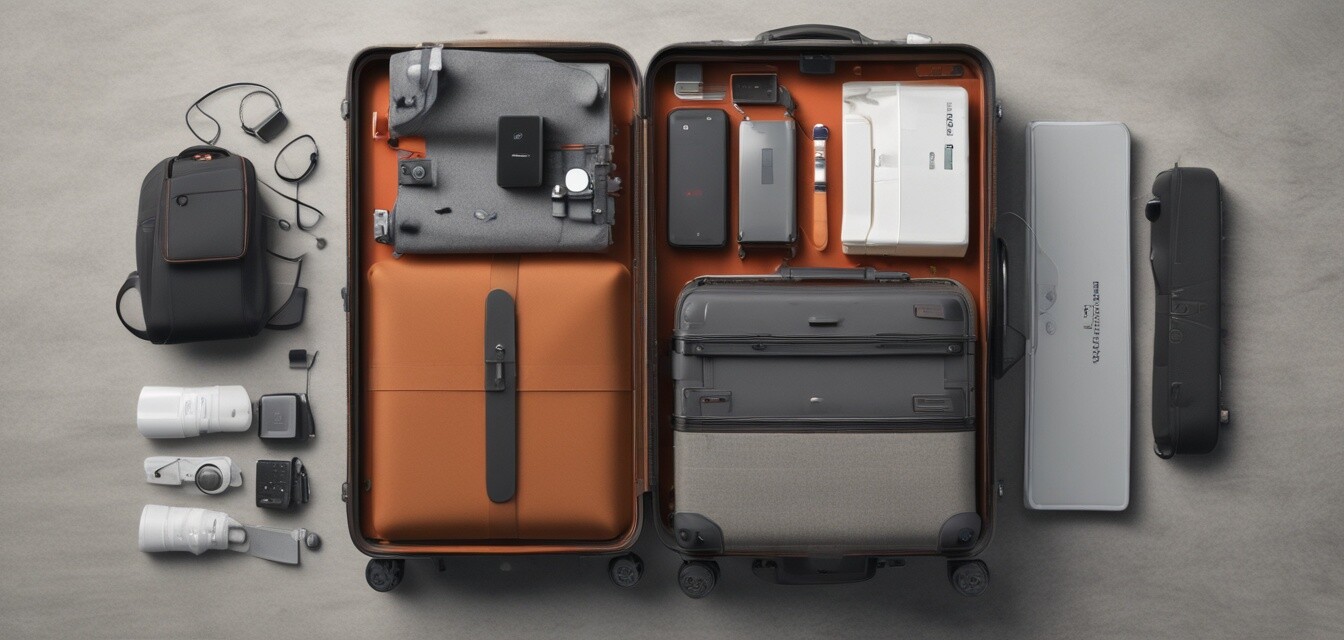
How to Choose the Perfect Smart Suitcase
Key Takeaways
- Understand the key features of smart suitcases, including RFID blocking technology.
- Look for integrated charging ports to keep your devices powered on the go.
- Evaluate size and weight for travel convenience and airline regulations.
- Assess connectivity options for tracking and security enhancements.
- Consider build quality and warranty for long-term travel durability.
In today's fast-paced world, traveling smartly is more important than ever. A smart suitcase not only keeps your belongings secure but also enhances your travel experience with innovative technology. This guide will help you discover the key features to consider when selecting the perfect smart suitcase.
Features to look for in a smart suitcase
When shopping for a smart suitcase, it’s essential to know what features can make your journey easier. Here are the top features to consider:
| Feature | Description |
|---|---|
| RFID Blocking Technology | Protects your personal information from electronic pickpockets. |
| Integrated Charging Port | Allows you to charge your devices on the go. |
| GPS Tracking | Helps you locate your suitcase if it gets lost. |
| Remote Locking | Secure your luggage from afar using your smartphone. |
| Durability | Materials designed to withstand the rigors of travel. |
Evaluating RFID blocking technology
RFID blocking is a crucial feature for protecting sensitive personal information stored in your travel documents and credit cards. Smart suitcases that include RFID blocking technology ensure that unauthorized access to your data is prevented, thereby enhancing your peace of mind while traveling.
Importance of integrated charging ports
Having an integrated charging port in your smart suitcase is a game changer. This allows you to charge your devices without needing to rummage through your bag to find a portable power bank. It’s especially useful during long layovers or when you’re on the road.
Size and weight considerations
When selecting a smart suitcase, size and weight are critical factors to consider. Airlines have specific size and weight restrictions for checked and carry-on luggage. Ensure your smart suitcase complies with these regulations to avoid extra fees.
Common size categories
- Carry-on: Typically 22 x 14 x 9 inches.
- Medium Checked: Generally 24 to 26 inches in height.
- Large Checked: Usually 27 to 30 inches in height.
Connectivity options for enhanced security
Smart suitcases often come equipped with advanced connectivity options. Look for features like GPS tracking and remote locking, which can greatly improve the security of your bag. Here are the types of connectivity to consider:
| Connectivity Option | Benefits |
|---|---|
| Bluetooth | Connects your suitcase to your smartphone for easy tracking and locking. |
| Wi-Fi | Allows you to connect to location services. |
| App Integration | Manage your suitcase functions through a dedicated app. |
Build quality and warranty
A smart suitcase is an investment, and you should ensure its durability. Look for sturdy materials like polycarbonate or ballistic nylon. Additionally, consider the warranty provided, as it reflects the manufacturer’s confidence in their product.
Where to buy smart suitcases
When you are ready to purchase, consider a variety of online and offline options. Popular retailers often have exclusive deals on smart luggage. Be sure to check out our other articles on smart suitcases and smart travel accessories for comprehensive guides.
Final thoughts
Choosing the perfect smart suitcase involves considering various features tailored to your travel style. With the right suitcase, your travels can become more secure, efficient, and enjoyable. Remember to prioritize technology that enhances your travel experience.
Tips for Beginners
- Before buying, read user reviews to gauge real-world performance.
- Always compare prices across different platforms.
- Ensure the suitcase has a good warranty for peace of mind.
Pros
- Increased security with advanced features.
- Convenience with integrated tech solutions.
- Durability for frequent travelers.
Cons
- Can be pricier than traditional luggage.
- Potential technical issues.
For more insights into tech-savvy travel essentials, visit our Travel Gear Buying Guides to empower your next adventure!